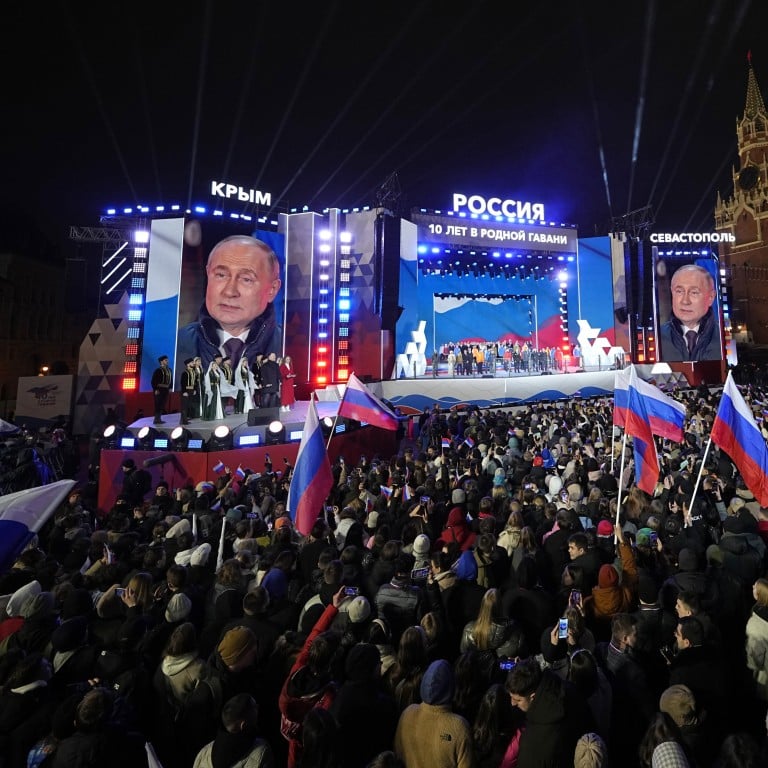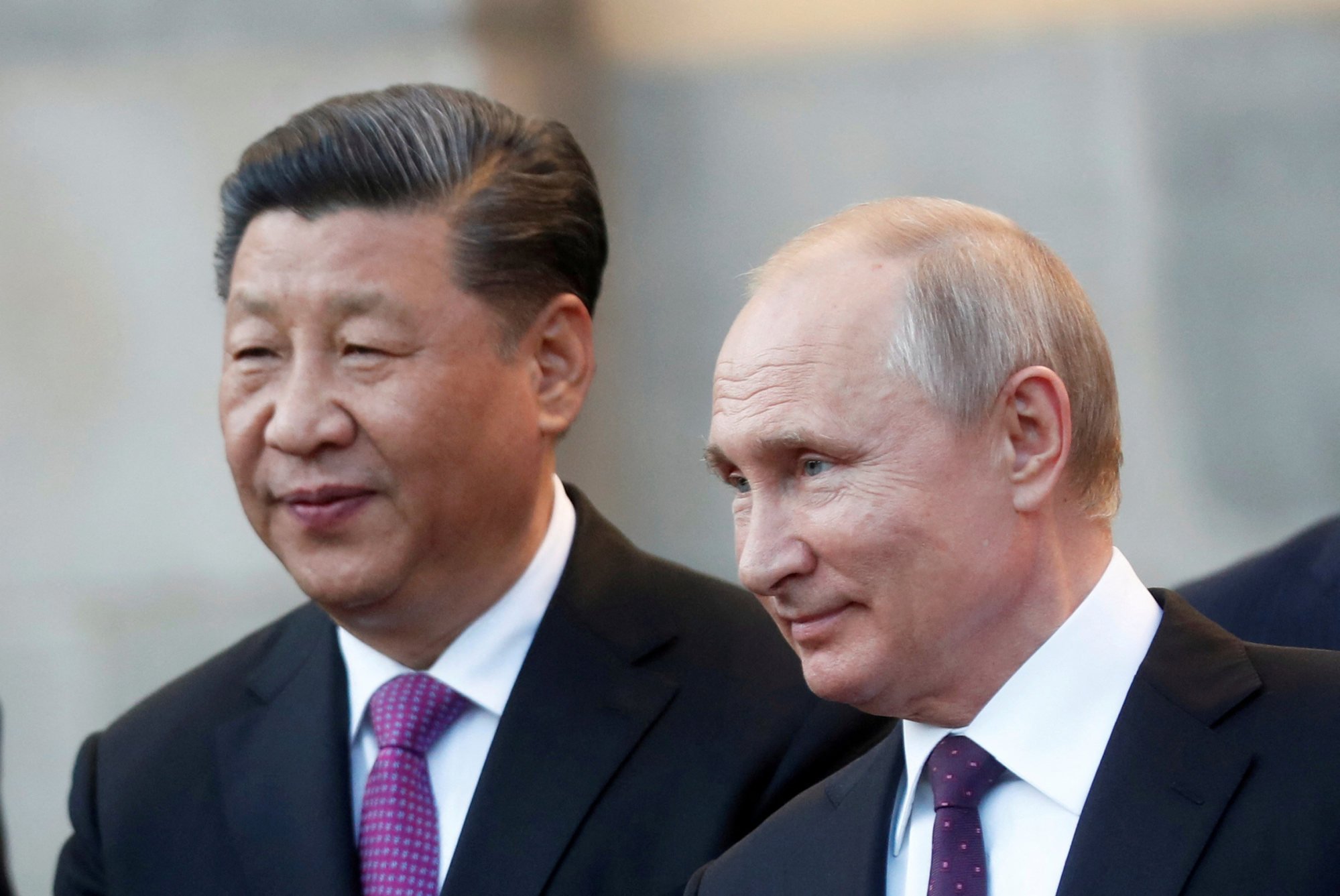
China needs to balance strong Russia ties with other relationships
- Putin’s re-election is positive for the increasingly close alliance with Beijing, but China’s diplomatic efforts require striking a fine balance ahead of Xi’s proposed trip to Europe
Vladimir Putin’s election to a fifth six-year term as president of Russia was a formality, since he no longer has any credible rivals. That is not to discount the scale of his landslide victory with nearly 88 per cent of the popular vote. It tightened his grip on power and confounded any illusions to the contrary still harboured in the West.
Domestically, the decisive outcome shows Putin’s support has not been weakened by the economic challenges posed by the Ukraine war effort following the invasion more than two years ago.
Externally, it is positive for Russia’s increasingly close alliance with China. Congratulating Putin on his victory, President Xi Jinping promised to further strengthen a partnership likely to deepen amid tension with the West.
He said China attached great importance to the development of bilateral relations and was willing to maintain close communication. In fact, Xi and Putin have met 42 times since Xi came to power in 2012 and they are expected to meet several times this year.

In his victory speech, Putin acknowledged his “good personal relations” with Xi and said the bilateral relationship was a “factor of stability” in international relations.
The reality is that Russia and China need each other for various reasons, amid geopolitical tension and uncertainty. Not least among them for China are new business opportunities while facing trade and technological barriers in the West, one example being electric vehicle exports.
The Russian market will probably become even more important. Politically, China greatly appreciates Moscow’s backing for Beijing’s one-China principle on the Taiwan issue and needs continuing support in developing the Belt and Road Initiative.
However, Beijing will need to strike a fine balance in its global diplomacy ahead of Xi’s proposed trip in May to Europe, where security concerns over Russia’s invasion of Ukraine run deep. The trip will include France, an important partner, which has made it clear that the invasion of Ukraine is a core European security issue.
There is still pressure on China to rein in Russia, although Beijing says it has little influence. Xi and Putin may have declared a “no-limits” friendship in 2022, but each side has its own national interests and agenda.
China-Russia ties set to deepen with another presidential term for Putin
That said, China is working hard to broker peace talks. In this regard a stable China-Russia relationship is a positive factor.
So this is shaping up as a landmark year in China-Russia ties. Moscow needs Beijing’s support to sustain its economy so Putin can focus on his Western front, and China needs Russia as a stable political ally while it focuses on Taiwan and other issues.
At the same time, this being a US election year, China faces more uncertainty in that relationship, which underlines the importance of stabilising political and economic relations with Europe.

